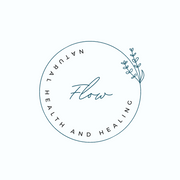What would you think, if I said you could access a free monthly report card which could tell you how your health and wellness are tracking? A monthly report outlining if things are working in flow or if you might need to start prioritising your self-care a little more...No ladies, it's not a new app on your phone.... it's your menstrual cycle and period! That's right, your monthly cycle and bleed can tell you SO much about your health. It's so important that it's known as your fifth vital sign (after pulse, temperature, respiration rate, and blood pressure - which are all incredibly important processes!). These vital signs can be monitored and measured to gain a better understanding of how your body is functioning (which is pretty cool really!). Let's chat a bit more about some of the information you can gather from your menstrual cycle, and what it might be able to tell you about your health.
Is Your Cycle Regular?
Having a regular consistent monthly menstrual cycle is a good indicator that things are humming along nicely. A cycle length between 25 - 32 days is considered normal and healthy. Anything outside this might need to be investigated, especially if you note irregularity most cycles. An absence of menstruation is definitely something to look into. We want you menstruating regularly with a healthy menstrual cycle every month. Irregular cycles may indicate a number of things (such as hormone imbalance, PCOS, overexercise, undereating or stress) and it's something I work with with clients consistently to bring back into balance.
Know Your Flow
I always recommend that women get to know their flow! Colour, consistency and length can tell us so much about your general health and vitality. We want your period to be bright red to a deeper red, the colour of a fine red wine! The presence of clots is also something to be mindful of. It can be difficult to measure blood loss (unless you use a menstrual cup), but loss up to 80mls per month can be considered normal. Very heavy periods can be due to a number of factors such as fibroids, endometriosis or adenomyosis and can contribute to low iron and anemia (so it's something that needs to be managed as well). If you feel depleted and very tired after your period, then you may want to investigate this further too.
Is Pain a Problem?
Period pain has been normalised in our society to the point that many women just accept and put up with pain each month, even when it impacts their quality of life. A small amount of pain or discomfort can be normal but when strong pain relief is needed (which can also impact gut health!) on a monthly basis, or you need to take time off work, then I suggest delving into this more deeply. Pain is not something you just have to put up with. With the right support, it can become much more manageable.
Are You Ovulating?
Ovulation is an incredibly important part of a healthy menstrual cycle. Yes, it's important if you want to conceive and make a baby, but it's about so much more than that. Regular healthy ovulation is a good indicator of health! The health benefits of ovulation (and the subsequent rise in progesterone) can help to regulate immune function, mood and inflammation whilst contributing to brain, heart, thyroid and bone health.
It is estimated that women have over 400 periods in their lifetime . This is 400 opportunities to slow down and check in with yourself around this time! Our bodies contain so much incredible wisdom, and when we slow down and listen, we make space for this wisdom to make itself known. Lean in and listen, you might be surprised at what you hear and what incredible information your menstrual cycle can give you. Have questions or feel like you need some support with your menstrual cycle? Book your free discovery call or consultation here.

